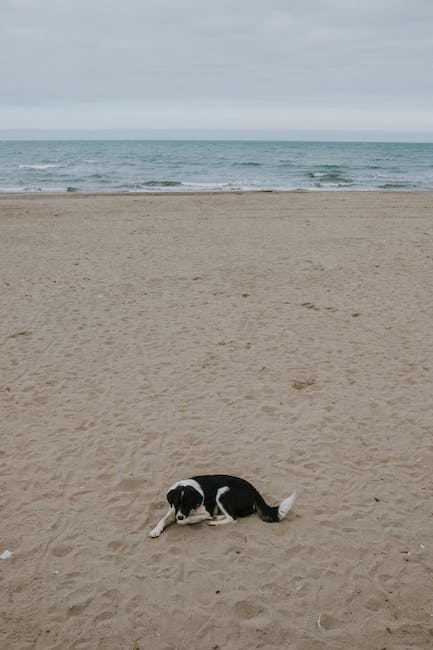As pet owners, we want nothing but the best for our furry friends. We make sure they get enough exercise, give them plenty of love and attention, and feed them the best possible diet. However, even the most well-intentioned pet owners can find themselves facing a common problem: bladder stones. These pesky little stones can cause a lot of discomfort for our pets, and can even lead to serious health problems if left untreated. But fear not, there is a solution: stone-free feeding. By picking the perfect diet for pets with bladder stones, we can help our furry friends live happy, healthy lives free from the discomfort of bladder stones. In this article, we’ll explore everything you need to know about stone-free feeding, and how to choose the perfect diet for your pet.
1. “Say Goodbye to Bladder Stones: A Guide to Stone-Free Feeding for Your Furry Friend”
Bladder stones can be a painful and costly problem for your furry friend. Fortunately, there are steps you can take to prevent them from forming in the first place. One of the most important factors in stone formation is diet. By feeding your pet a stone-free diet, you can significantly reduce their risk of developing bladder stones.
So, what should you be feeding your pet? First and foremost, make sure they are getting plenty of water. Dehydration is a major contributor to stone formation, so it’s important to keep your pet well-hydrated. You can also consider feeding them a specialized diet that is formulated to prevent stone formation. Look for foods that are low in protein, phosphorus, and magnesium, as these are all factors that can contribute to stone formation. Additionally, foods that are high in moisture and fiber can help to flush out the bladder and prevent stones from forming. By following these simple guidelines, you can help ensure that your furry friend stays healthy and stone-free.
2. “Choosing the Right Diet: A Crucial Step in Preventing Bladder Stones in Pets”
When it comes to preventing bladder stones in pets, choosing the right diet is crucial. Bladder stones are a common problem in pets, and they can cause a lot of discomfort and pain. The good news is that you can prevent bladder stones by making sure your pet is eating the right kind of food.
Here are some tips for choosing the right diet for your pet:
- Choose a high-quality pet food: Look for a pet food that is made with high-quality ingredients and is free from artificial preservatives, colors, and flavors.
- Choose a food that is low in magnesium: Magnesium is a mineral that can contribute to the formation of bladder stones. Look for a pet food that is low in magnesium to help prevent bladder stones.
- Choose a food that is high in moisture: A diet that is high in moisture can help prevent bladder stones by flushing out the urinary tract. Look for wet food or add water to your pet’s dry food to increase moisture.
By choosing the right diet for your pet, you can help prevent bladder stones and keep your pet healthy and happy. If you have any concerns about your pet’s diet or bladder health, be sure to talk to your veterinarian.
3. “From Kibble to Raw: Exploring the Best Feeding Options for Pets with a History of Bladder Stones
When it comes to feeding pets with a history of bladder stones, it’s important to consider the best options to prevent future occurrences. While kibble is a popular choice for many pet owners, it may not be the best option for pets with bladder stones. Here are some alternative feeding options to consider:
- Raw Food: Some pet owners opt for a raw food diet, which consists of uncooked meat, bones, and vegetables. This option provides a more natural and nutrient-dense diet for pets, which can help prevent bladder stones. However, it’s important to consult with a veterinarian before switching to a raw food diet to ensure that it’s appropriate for your pet’s specific needs.
- Canned Food: Canned food is another option to consider for pets with bladder stones. This option provides more moisture and can help prevent dehydration, which is a risk factor for bladder stones. Look for canned food options that are low in magnesium and phosphorus, as these minerals can contribute to the formation of bladder stones.
Ultimately, the best feeding option for pets with a history of bladder stones will depend on their individual needs and preferences. It’s important to work with a veterinarian to develop a feeding plan that will help prevent future occurrences of bladder stones and promote overall health and wellness for your pet.
In conclusion, feeding your pet with bladder stones can be a challenging task, but it is not impossible. With the right diet and proper care, you can help your furry friend live a healthy and happy life, free from the discomfort and pain of bladder stones. Remember to consult with your veterinarian before making any changes to your pet’s diet, and always keep an eye on their behavior and health. With patience and dedication, you can ensure that your pet stays stone-free and enjoys a long and fulfilling life by your side.

